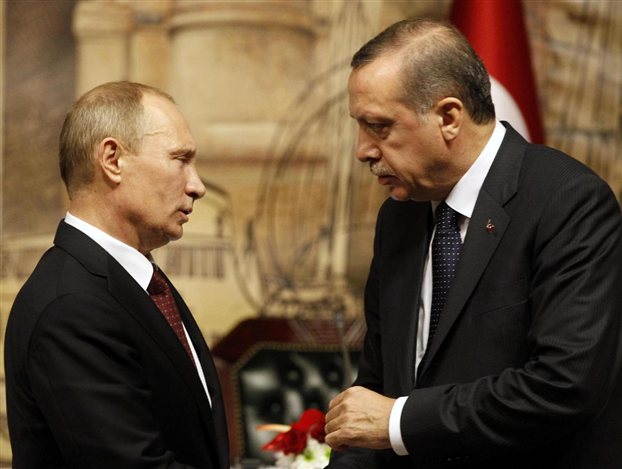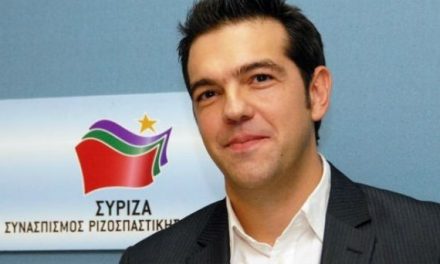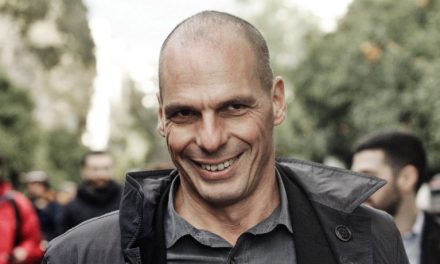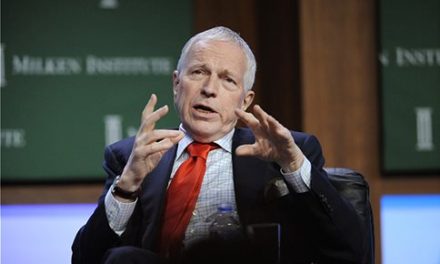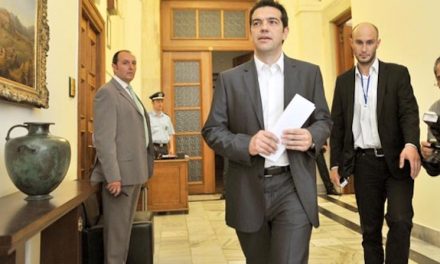By Huda al-Husseini, Alarabiya
Turkish President Recep Tayyip Erdogan has deployed ground and air forces in Syria and Iraq. He is also moving his naval fleet in the Aegean Sea threatening Greece and Cyprus.
Turkey-Greece spat
He is taking things further as it is time to harvest, and according to Erdogan this is what will specify his share. On March 25, on the commemoration of Greek independence from Ottoman rule, Greek Prime Minister Alexis Tsipras called on Turkey to suspend its illegal activities in the Aegean Sea and to respect international law.
On the same occasion, Greek Defense Minister Panos Kammenos said: “We will crush whoever dares to question our national sovereignty. Whoever has in mind large Ottoman empires should remember 1821. How the Greek people faced the Ottoman empire and crushed it.”
Tensions between Greece and Turkey have escalated over the past two months due to several problems such as the gas drilling operations around Cyprus and extradition of Turkish soldiers who fled to Greece following the coup on July 15, 2016.
Turkey opposes Cyprus’ right to exploit huge gas reserves in East of the Mediterranean Sea claiming that this violates the rights of Cypriot-Turkish people in north of the island.
Turkey has prevented the Italian oil and gas company ENI from carrying out exploratory drilling operations twice this year. American oil and gas corporation ExxonMobil only began its drilling operations; there after a US amphibious assault ship and other naval units arrived to the Cypriot coastal city of Limassol.
As ties between Russia and the West deteriorate, it is to some extent reminiscent of the Cold War, if not worse
Huda al-Husseini
Relations with neighbors
Europe’s limited ability to influence Turkey adds to the difficulties which Greece and Cyprus have in their relations with their neighbor. The Turkish president presents himself as the protector of Muslims and a great victor. In order to maintain this image, he engages in practices that defy Cyprus’ sovereignty and continuously pressures Greece.
The only country that can pressure Turkey is Russia as Erdogan and his Russian counterpart Vladimir Putin now find themselves in a marriage of convenience.
The reasons behind these tensions are nothing new. Greece and Turkey want to confirm their sovereignty over disputed islands in the Aegean Sea, which the Turks call Kardak and the Greek call Imia.
Disputed islands
The roots of the dispute date back to the Treaty of Lausanne in 1923 in which Turkey agreed to its modern borders after the Ottoman empire was dissolved in the wake of World War I. In this treaty, Turkey conceded islands to Italy. Then Italy handed these islands to Greece when the Paris Peace Treaties were signed in 1947.
The islands, though small and uninhabited, thus became disputed. In 1996, Turkey and Greece were on the verge of war due to this dispute. A war was avoided thanks to the efforts of Richard Holbrooke, then-US Assistant Secretary of State for European affairs. The issue of these disputed islands surfaced again following in recent times.
In December last year, during the first visit by a Turkish president to Greece in 65 years, Erdogan hinted at the controversial borders upsetting and surprising his hosts.
Tensions escalated after the July 2016 coup when Greece refused to extradite eight Turkish officers who fled to it. Ever since, confrontations between Turkish and Greek naval forces worsened tensions. What added fuel to the fire is that on March 2, Turkey arrested two Greek soldiers who entered Turkish territories due to bad weather conditions. Both soldiers are still detained.
As reports about gas in Cyprus increased, Ankara said it was looking after citizens’ interests in North Cyprus. A western source said the situation has begun to take a dangerous turn and that there are no indicators that tensions will dissipate anytime soon. Although no one desires to see a new conflict erupt, it seems a prolonged confrontation is likely to occur.
When Erdogan became prime minister in 2003, relations with Greece were bad due to the disputed islands. In 1999, Turkey detained Abdullah Ocalan, leader of the Kurdistan Workers’ Party, while he was looking for refuge at the Greek ambassador’s residence in Nairobi in Kenya. This caused a scandal for Greece and upset Turkey.
However, relations significantly improved during the Justice and Development Party’s reign, especially as Ankara sought to join the EU. To prove good intentions, Greece and Turkey opened a gas pipeline in 2007. However, this did not resolve issues – such as find a permanent solution to the Cypriot conflict and to the situation of minorities in each country.
Instead of using his visit to Greece to mitigate tensions, Erdogan called for reviewing the Treaty of Lausanne. This shocked Greece which felt that the Turkish president wants what’s rightfully for Greece in the Aegean Sea. In this context, Greek Prime Minister Alexis Tsipras described Turkey as an “aggressive neighbor” during the Davos Forum in January.
A western source told me that tensions between Greece and Turkey are significant particularly in terms of their impact on the future of the NATO. As Russia further intervenes on the outskirts of Europe – not just in Ukraine but also in East of the Mediterranean Sea via its intervention in Syria – the increased hostility between two major members creates a serious problem for NATO. What worsens the NATO’s fears is the increased friction between Turkey and the US.
Turkey’s future in NATO
Ankara’s decision to buy the advanced S-400 defense system from Russia also worries NATO. There’s also Moscow’s ambition to divide the NATO. All these, in addition to the Turkish-Greek dispute, threaten to hand over victory to Putin on a silver plate, as my source puts it.
The source added that there’s no clear exit from this crisis, especially that the Akkuyu nuclear power plant – launched by Turkey and Russia – is a large joint project that symbolizes the strategic Russian-Turkish ties. Officials hope everything goes as planned despite funding difficulties.
Turkish officials insist that Akkuyu will begin operating in 2023, which happens to mark the 100th anniversary of forming the Turkish republic – although it looks unlikely that they will commit to this timeframe.
It’s well-known that nuclear energy is an important constituent in the strategic arsenal of Russia’s foreign policy. The Russian company Rosatom, which was granted a construction license for the Akkuyu project, currently has contracts to build 34 nuclear power stations.
According to my source, this makes Russia more capable of reaching out to more countries, which it cannot reach via oil and gas pipelines. There are also other Russian projects in Turkey, in addition to its projects in other countries like Egypt and Iran. There are also ongoing negotiations with Gulf countries. The source added that although ties between Russia and Turkey may not be a real alliance, Russia will enjoy strong geopolitical benefits.
Relations between Turkey and the NATO are deteriorating. A Greek political commentator said that as ties between Russia and the West deteriorate, it is to some extent reminiscent of the Cold War, if not worse. It’s not possible that Russia’s pressure on Turkey will have any benefits.
Turkey will be capable to act like it’s in its own parallel universe and do as it likes. It began doing so in Iraq and then in Syria. It’s now eyeing Greece. The Middle East has slowly begun expanding towards Europe. Russia is happy and the US is reiterating: We must not lose Turkey!
This article was first published in Arabic.

